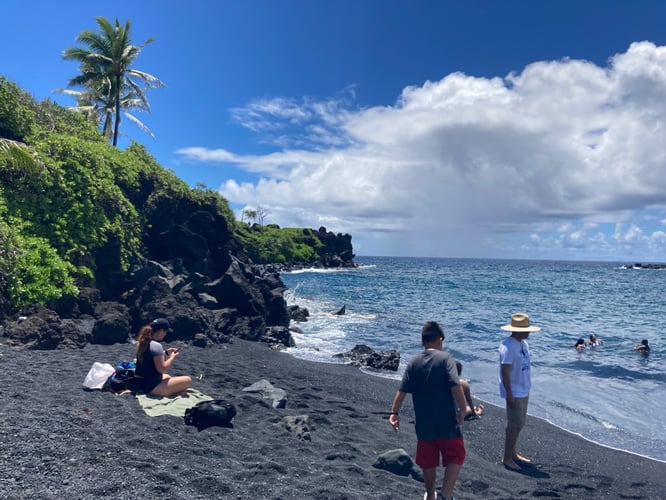What Does A Travel Agent ACTUALLY Do?
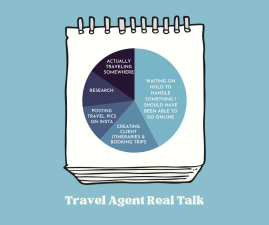
I love being a travel agent, but like any job, it has times when it can be frustrating, boring or even annoying. In fact, I told my husband the other day that sometimes being a travel agent feels like an endless cycle of hold music and waiting for someone to pick up the phone. He laughed a bit and said something to the effect of “your clients have no idea what you do for them.”
Upon reflection, I realized he was probably correct. Just about everyone has booked a trip online at some point, and I suspect that the image that most people have of travel agents is similar to that. In some respects, that is true – but being a travel agent (ESPECIALLY a 1099 employee) involves much more than that!
Research
A large chunk of my job involves research. Even for destinations I know well, it’s important that I have the most up-to-date information – especially in times of covid. For each and every trip that I plan for a client, there are things that I need to double-check or learn, such as:
- Destination information – weather, best times of year to go, general “vibe” of the place, currency, langugage, entry requirements, and so on.
- Things to do – best/most popular things to do in each destination, costs, how to book certain activities
- Transportation – getting to/from the airport as well as around the destination
- Hotels/Resort options – more about this a bit later
- Festivals, special events, or other things that may impact a client’s travel
- Covid restrictions – what restrictions are currently in place, what documentation will the client need in order to visit, where can a client go to get a test if needed
Fortunately, I have a ton of resources to help me with research. The agency I work for has about 70 agents who have traveled all over the world; chances are, someone has been to the place that I’m researching, even if I haven’t been there myself. Additionally, my agency has quite a few training resources on everything from particular resorts to destinations to passport services. Most of these trainings are done via recorded webinars, but there are times when I can sign up for a live webinar or reach out to the sales manager for the destination/resort. And finally, I am continually updating my training & credentials by taking classes from the various vendors that we work with.
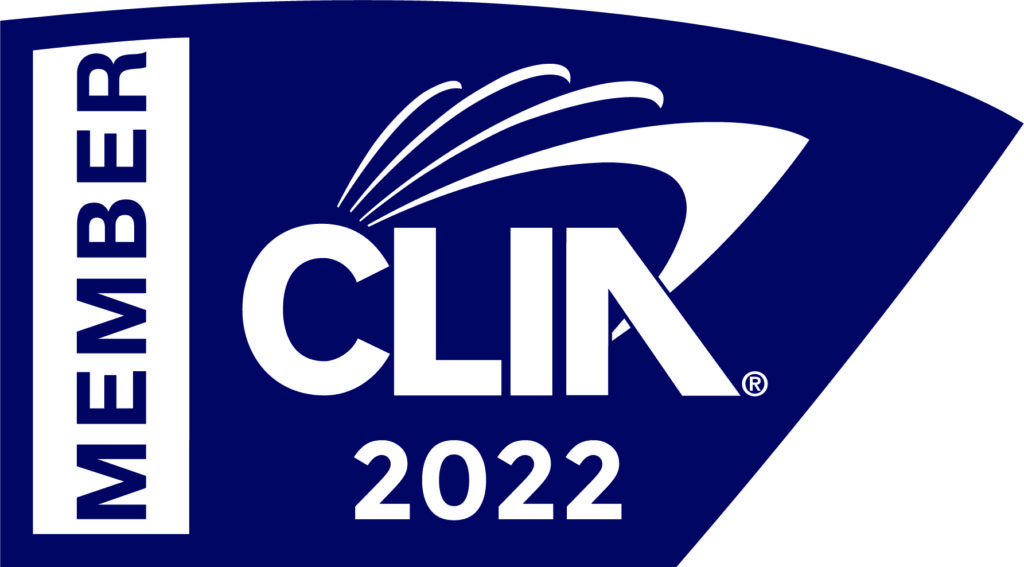


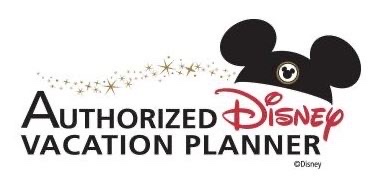


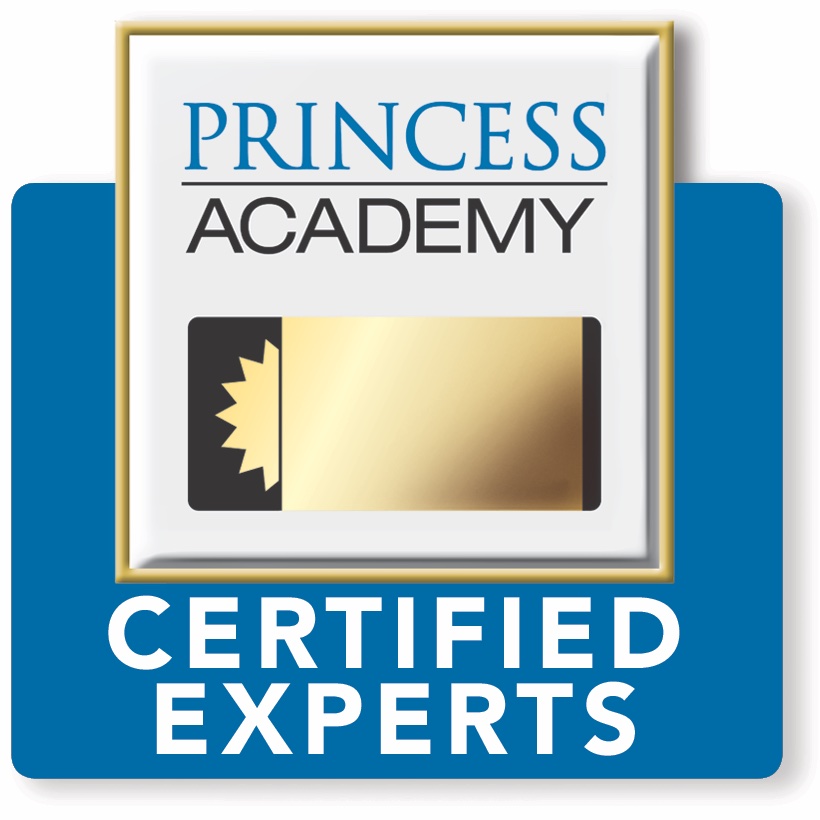


Recommending
Finding the right accommodations or vacation
One of the main reasons a person chooses to use a travel agent is to help narrow down the options and choices available for every destination. I look at this a little bit like matchmaking. Anyone can look online at a list of hotel options and activities in a particular area, but as a travel agent, it is my job to really ask questions and listen to my client’s interests. I will always tailor my recommendations to the needs, desires, and budget of the client.

For example, if a client is interested in taking their family to Hawaii, I’m probably going to ask some questions about the ages of the kids, what sorts of things they like to do on vacation, if they’re interested in renting a car or prefer to rely on foot/public transit, and so on. Traveling with kids often means looking at suite-style or apartment-style accommodations, especially if a child is still at nap age. It may also mean that we need to look into rental equipment (like strollers or cribs), and I would include all of that information in the proposals I send back to a client.
If the client is going on a cruise or to an all-inclusive resort, I’ll work to find them one that matches what type of vacation they want. Different resorts and cruise lines have different vibes. I would not recommend the same thing to a couple in their 40s looking to relax as I would to a couple in their 20s looking to be in the heart of the action. This is the kind of knowledge and expertise that really makes using a good agent worthwhile.
Creating client itineraries
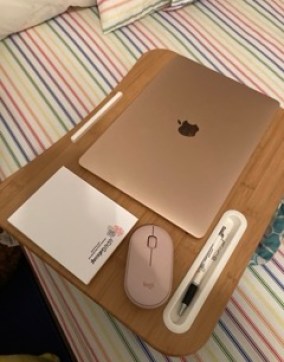
Once the client has settled on the basics (hotel or area, flights, etc), I will create an itinerary for the client including flight information, transfer information, hotel information, things to see or do, visa/passport/covid requirements needed for travel, general information about the destination and so on. I like to include things like maps of the area, lists of the most popular things to do, and a little bit about the culture or history of the area. If activities need to be booked ahead of time, I will figure out the best way to book them and either provide information or actually book the activity for the client.
Following Up
When we’ve found a hotel or vacation package the client is happy with, I have a list of several vendors that I shop to compare prices. Sometimes, even when the price is equal, I can find a way to include something like a room upgrade or resort credit depending on which vendor we book with. Different vendors specialize in different parts of the world; the vendor I’d use for Hawaii is different than the one I’d use for Europe, for example.
A good chunk of my time is spent in follow-up. Some clients know exactly what they want before they ever reach out to me, and others want to spend a lot of time tweaking and fine-tuning the itinerary before they book. It may take me two or three weeks worth of follow up and making changes before we get to an itinerary the client loves.
Booking & Financial Management
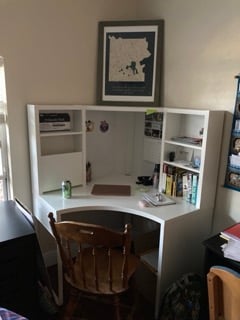
Once we have an itinerary that the client likes, then it’s time to get everything reserved. This is always the part that makes me the most nervous – after all, I am spending other people’s hard-earned money and it’s extremely important that I book everything correctly! This is one instance where “good enough” is not enough.
In addition to making sure deposits get taken care of, I am also responsible for keeping track of when final payments are due, making sure the client is aware of the final cost, and ensuring the final payment is made on time. When something goes wrong, I may spend time on the phone with a vendor changing dates, working on refunds or managing a component of a trip.
This is also the time to take care of some of the smaller components of a trip that are easy to lose track of – transfers, activities, gear rentals, baggage fees, travel insurance and so on.
Speaking of travel insurance, I have spent considerable time researching different kinds of travel insurance. While I do not sell travel insurance, I certainly recommend it – particularly if a client is leaving the country. Clients often look to me to help translate some of the terms or figure out what coverages they might need.
Client Management & Concierge Services
Booking a client is just the first step! To me, the harder and more important work is taking care of my clients who will be or are traveling. Some trips, like cruises, don’t require a lot of additional work on my end. I do like to remind clients about things like the date they can make dining reservations or choose shore excursions, but since so much of the entertainment is already taken care of, I don’t have a lot of active management I need to do with this type of reservation.
For other trips, I have a lot to do. A fully independent trip (FIT) means that I am usually booking flights, hotels, trains or car rentals, activities, and several other components for a client. My job is to put all of that together in one seamless package, and make sure the client knows when he or she is doing what.
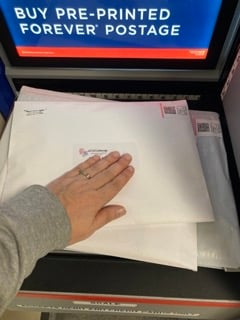
I have several different types of software that I use for this, from itinerary planning sites to customer databases. For now, I use an old-school wall calendar to help me stay organized about due dates and upcoming travel.
Another thing I like to do for my clients is to put together a packet of information for them about their destination and send it to them in the mail. We live in a digital world but I still think it’s nice to be able to spread out your maps and brochures and take a look at everything as you get ready to travel. I personalize these packets to include information that I know is going to be important to the client, and I try to include a little something to help them get excited about their trip.
When a client is traveling, I pay attention to them as well! I almost always track their flights to make sure there aren’t any last minute changes (if there are, I can text them to let them know), check in on them while they’re in destination, and make sure they know that I am there to troubleshoot any issues that arise. Sometimes, I’ll even arrange to have a small suprise delivered to their room!
Business Management
Yes, I own a small business. Officially. My business is registered with the State of Florida as an LLC and a Seller of Travel. I keep track of my income and expenses and pay quarterly taxes. I have a “book of business” that I keep updated with client contact information and new leads.

Speaking of leads, one of the hardest parts of being a travel agent is generating leads. I’m home based, so there’s no storefront for people to walk into, and I’m not just handed leads by my agency. I have to find them! (So to any past, current or future clients – THANK YOU! Your business and the fact that you refer your friends means the world to me).
The upshot of having to generate leads is that I am still learning how to best market myself and my services. I’m constantly listening to podcasts and webinars on small business ownership and marketing, learning how to navigate around on Instagram, and paying attention to the metrics that show me things like what posts get the most attention, what is the best time of day for me to send things out, how many people open my emails, and the like. This is a work in progress.
Realizing that I am a business owner was a strange mental shift for me. I’ve been working as a travel agent since 2013, and it’s only been in the last several months that I started thinking about it as a JOB and not a “side hustle” or “hobby income.” It’s been a bit overwhelming, but my brain is buzzing with ideas. I have a renewed energy and my passion for the industry is theough the roof. I am setting and exceeding goals. Basically kicking butt
Wrapping it All Up
I often think of my work as a travel agent a bit like an iceberg: the part a client sees is just a small part of the overall picture. All the years of trial and error, persistence and patience have made me a great advocate for my clients, and even more knowledgeable about travel in general. I really do love what I do!
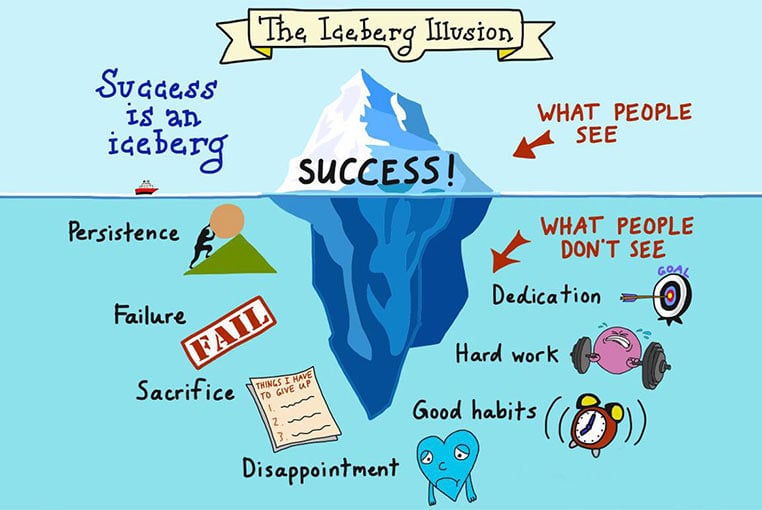
Related
How I Make Money as a Travel AgentSimilar post
How to be a Confident Traveler, Part 4: When Disaster StrikesSimilar post
How to be a Confident Traveler: Part 1In "Travel Planning"

